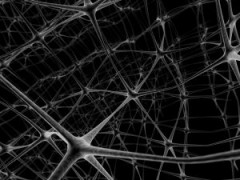Neuroscience and Management Skills Development
 Advances in neuroscience have taken off in recent years and show no sign of slowing down. But how can these new findings of how our brains work be applied to management skill development? Authors Paul McDonald and Yi-Yuan Tang discuss in their article “Neuroscientific Insights Into Management Development: Theoretical Propositions and Practical Implications” from Group and Organization Management.
Advances in neuroscience have taken off in recent years and show no sign of slowing down. But how can these new findings of how our brains work be applied to management skill development? Authors Paul McDonald and Yi-Yuan Tang discuss in their article “Neuroscientific Insights Into Management Development: Theoretical Propositions and Practical Implications” from Group and Organization Management.
From the article:
Neuroscientific findings point to two skills that should be high on the management development agenda. The first is metacognition, the ability to pause and think about what one is thinking about.
Metacognition is instrumental in self-regulated learning, a critical skill within turbulent and complex environments (Haynie, Shepherd, Mosakowski, & Earley, 2010). The second skill is mindfulness, which can be developed through a variety of traditions spanning from Eastern to Western. Mindfulness has implications for management development, including attention, creativity, and adaptability. From a Western perspective, Langer (1989) has developed a sociocognitive approach, distinct from meditation. From an Eastern perspective, Tang (2011) suggests integrative body–mind training as the means to increase neuroplasticity leading to enhanced attentional and learning capability.
“Neuroscientific Insights Into Management Development: Theoretical Propositions and Practical Implications” from Group and Organization Management can be read for free by clicking here. Want to know about all the latest news and research from Group and Organization Management? Click here to sign up for e-alerts!
































































































